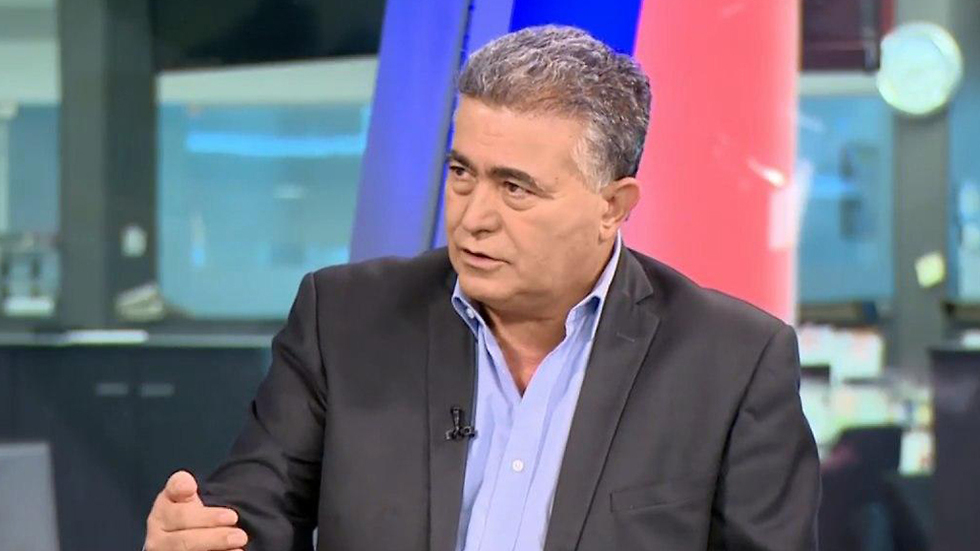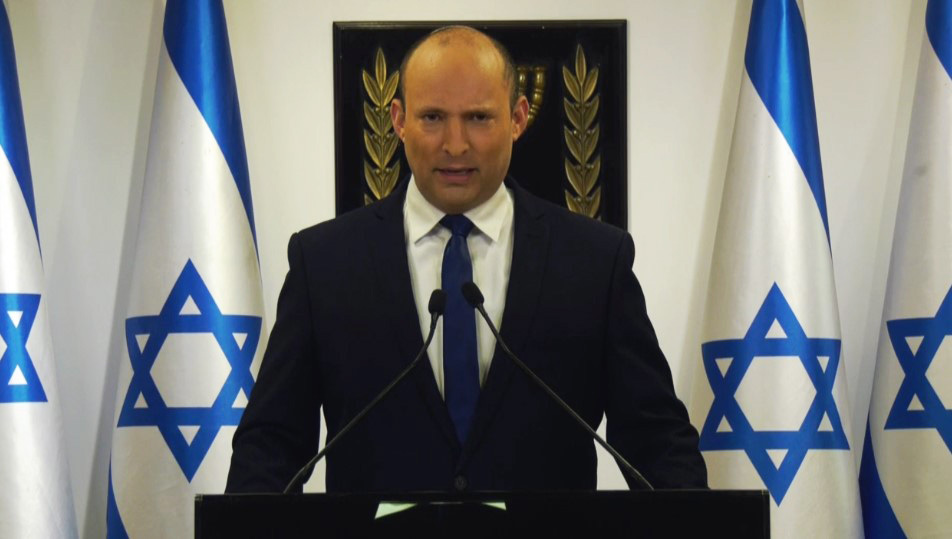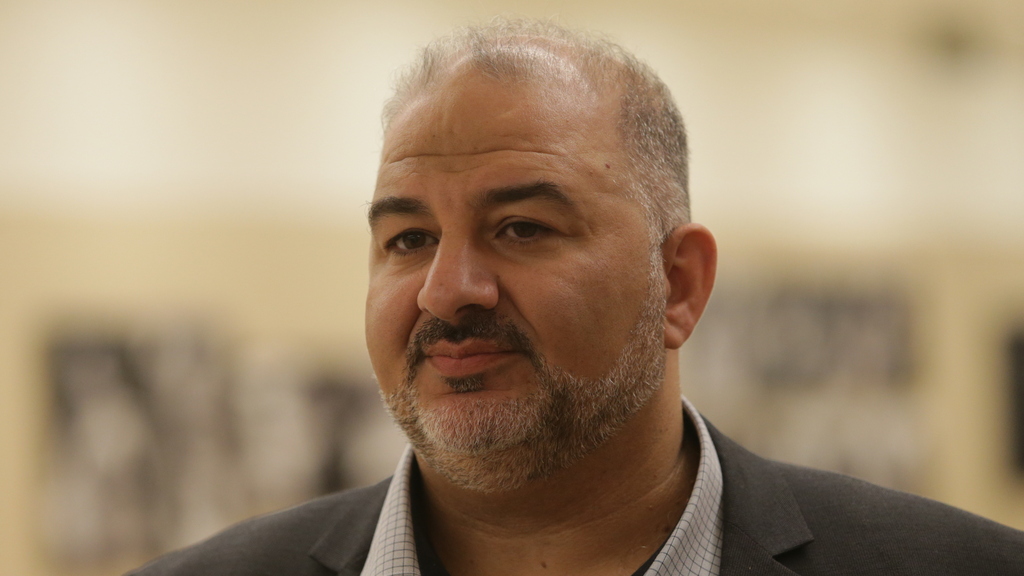Yet again, Israel heads to the polls after the government failed to pass a state budget and Knesset was dissolved.
Though less than a year has passed since the last cycle, the coming elections, which will be held in late March, will feature an entirely different political landscape.
The most notable and consequential change was the one that enabled the last government to form – the split in the Blue & White party, which saw Defense Minister Benny Gantz’s partners Yair Lapid and Moshe Ya'alon leave him when he decided to join forces with Prime Minister Benjamin Netanyahu after the third consecutive election stalemate in March 2020.
For the next election, Lapid will once again lead the Yesh Atid party which he formed in 2012.
Gantz, after reaching historical highs in the recent three elections and topping Netanyahu in the number of parliament seats gained, while failing to actually unseat the prime minister, seems headed to political oblivion, as voters have refused to forgive his joining hands with the man he vowed to topple. Recent polls show him netting close to zero seats.
Another tiny offshoot of the once-powerful Blue & White party is Derech Eretz, which also splintered from the mothership after the latest elections but unlike Yesh Atid, chose to join the government instead of heading to the opposition.
While remaining loyal to Gantz and coordinating policy with his bloc, the minuscule party — which consists of only former Netanyahu aides Zvi Hauser and Yoaz Handel — last week announced it had found a new political home, joining former Likud MK Gideon Sa'ar.
Sa'ar represents the only major change in parliament’s right-wing. A longtime lawmaker in Netanyahu’s Likud party, and a personal rival of the prime minister, he announced that he would form a new party two weeks ago, promising to challenge the prime minister and not sit with him in future governments.
Sa'ar was promptly joined by Derech Eretz and several other Likud lawmakers, and in the coming weeks is expected to unveil the rest of his castmates, including the possible addition of former IDF chief of staff Gadi Eizenkot, rumored to be contemplating entering politics.
On Wednesday, Likud MKs Sharren Haskel and Ze'ev Elkin announced they will join Sa'ar's party.
To the right of Sa'ar, voters in the coming election can choose Naftali Bennett, a longtime loyal ally of Netanyahu who was cast aside during the current government’s formation.
Bennett’s Yamina party gained popularity while straddling the opposition benches in recent months, lobbying darts at the prime minister and his cabinet for their failed pandemic response.
Yet the surprise entrance of Sa'ar has quickly sapped support for Bennett from center-right voters, and he is again nearing single digits in public opinion polls.
Back to the center-left, or what is left of it: The once-proud Labor party, for decades the most powerful movement in Israel which almost single-handedly established the country, has disappeared from the face of the political scene.
"Labor is dying because we’ve given up on trying to persuade voters," says Eitan Cabel, a former minister with the party.
"Instead of trying to convince constituents on the other side of the aisle to vote for us, instead of drafting policies, instead of focusing on branding, we’re waiting for a general to come and be our savior. That’s not going to cut it," Cabel says, referring to Gantz, Gabi Ashkenazi, Ehud Barak, Amram Mitzna and the slew of former military generals and commanders in chief who have assumed leadership of the center-left in past years.
"Our last two chairmen, [Avi] Gabay and [Amir] Peretz, were outstanding undertakers," he said. "But it’s not just their fault."
6 View gallery


Labor leader Amir Peretz has announced his departure from the post
(Photo: Meshi Ben Ami)
Cabel says that the once-reliable fault lines of left and right have vanished, thanks to the sole issue of Netanyahu remaining in office, which has presented voters with two distinct, exclusive options.
"He’s thrown the entire political system out of whack," Cabel says of the prime minister, who is facing criminal charges of bribery, fraud and breach of trust in three criminal cases against him.
Netanyahu "discombobulated the entire scene. People’s hatred for him drove them out of their minds, and they are now willing to vote for right-wing extremists like Bennett and Sa'ar just to get rid of him."
Several candidates are expected to try to pick up the pieces of the once-proud Israeli left-wing. The parade of names includes familiar ones such as former foreign minister and prime ministerial candidate Tzipi Livni; current mayor of Tel Aviv Ron Huldai; Meretz lawmaker and former general Yair Golan; and Yair Lapid’s former right-hand man and second in command of Yesh Atid, Ofer Shelah.
The latter has challenged his once close friend’s persistent refusal to cooperate politically with the Arab members of parliament, claiming the left’s only hope of reassuming power is to acknowledge the representatives of 20% of Israel’s population and join together with them in Knesset.
On Thursday, Shelah announced he will quit Yesh Atid and form his own party.
Yet it remains unclear how much of the predominantly Arab Joint Arab alliance will be left after the coming elections. After garnering a historic 15 seats in the last round, the party seems headed for separation, as the four factions making up the group have signaled they will not remain united much longer.
Mansour Abbas, who heads Ra'am (the United Arab List), one of the four parties making up the Joint List, has in recent weeks made surprising overtures to Netanyahu himself.
Abbas has said he will not rule out voting for a bill granting Netanyahu retroactive immunity for his crimes, if he believes he can procure funds and laws benefiting the Arab community in return.
The move has outraged Abbas’ partners, who accuse Netanyahu of racism and of continued discrimination against the Arab community and have ruled out any cooperation with him.
"Theoretically, Abbas is right. The Arab population has been in the left wing’s pocket for more than 70 years. When you’re in politics that long and you have no alternative to partner with, you’re going be taken for granted," says Prof. Aziz Haidar, a research fellow at the Hebrew University’s Harry S. Truman Research Institute and the Van Leer Jerusalem Institute.
But Haidar, who studies the Israeli Arab community’s middle-class sector and its political potential, insists that partnering with Netanyahu should not be an option.
"You can stay neutral; you can sit this cycle out in terms of supporting a candidate for prime minister. But don’t back Netanyahu who has hurt our people perhaps more than any other politician in history," he says.
The in-house bickering among Arab lawmakers has led to a noticeable dip in support for the Joint List.
"They are headed for a split, I think it’s inevitable," Haidar says of the four parties.
Despite the many shifts and changes, some things in the political sphere remain the same. Avigdor Liberman’s Yisrael Beytenu will run unchanged in the coming elections, as will Likud, headed by Netanyahu, minus the party defectors.
The ultra-Orthodox parties Shas and United Torah Judaism also have remained intact, with the candidates being chosen by a committee of rabbis and elders.






